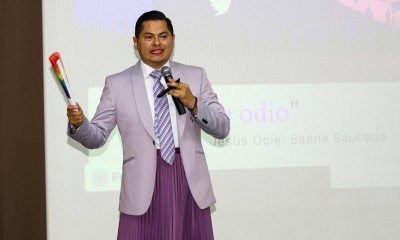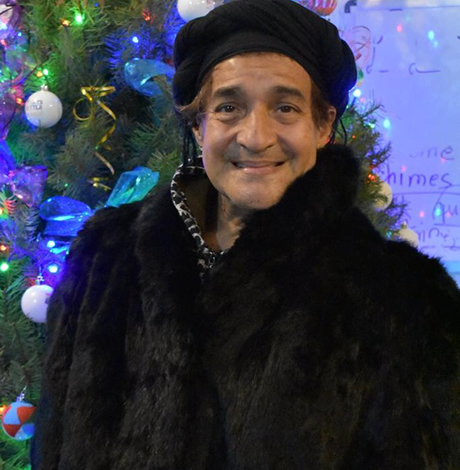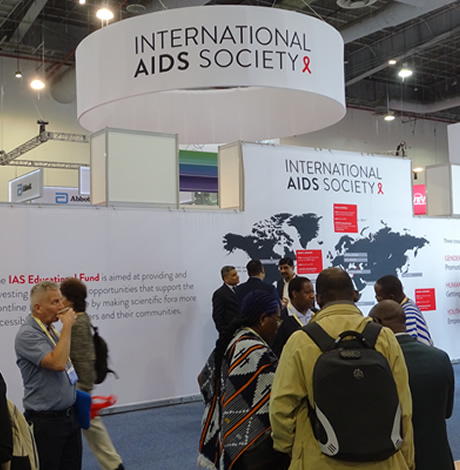World
Mexico City shelter offers second chance for transgender residents
Casa Refugio Paola Buenrostro named after murdered trans sex worker
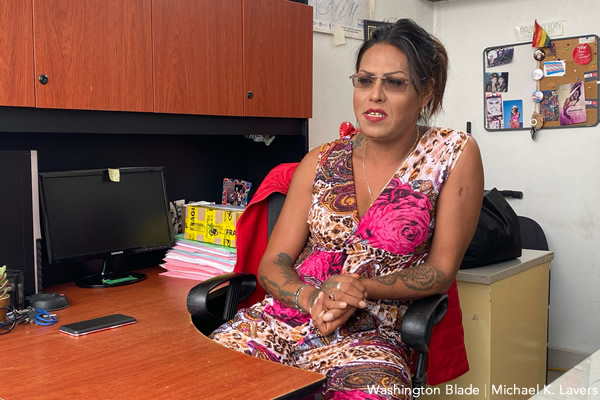
MEXICO CITY — Alcohol and drugs were the only things that allowed Michel Ríos, 33, to cope with her fears and traumas when she engaged in sex work or tried to face her life as a person with a disability.
Ríos is a transgender woman from Mexico’s Veracruz state who lost one of her legs when she was seven and earned her family’s contempt from the moment she assumed a non-heteronormative sexual orientation and gender identity. Ríos was forced to leave home at 15 and began to earn a living on the streets, alone.
She began to seek help after several years.
Ríos found Casa Refugio Paola Buenrostro, a shelter in Mexico City that Casa de las Muñecas Tiresias, a local advocacy group, runs. She first arrived with the intention of becoming sober through an Alcoholics Anonymous program, but she ended up staying to rebuild her life.
Shelter named in honor of murdered trans sex worker
Kenia Cuevas, a renowned LGBTQ rights activist, founded Casa de las Muñecas after she witnessed the murder of her best friend, Paola Buenrostro, in December 2016 while they were both engaged in sex work. That tragic event was the final straw that motivated her to fight for her community.
Casa Refugio Paola Buenrostro opened its doors in January 2020.
“The mission of our organization is that those people who we welcome know their rights, that they can have a decent life, that they can understand life processes and we can rescue them from situations of vulnerability, of abandonment, when they believe that everything has been lost,” said Cuevas during an exclusive interview with the Washington Blade via Zoom.
International News Editor Michael K. Lavers visited the shelter on Saturday and met with Cuevas.
“In short, what we do is create living conditions in accordance with human rights,” said Cuevas. “We have managed to give visibility to all the problems that trans people face on a day-to-day basis and of which society was not aware.”
Casa de las Muñecas has offices in Mexico City and in Mexico, Nayarit, Morelos and Guerrero states. It has a team of professionals who carry out a variety of services for trans people that includes support for legally changing their identity, legal advice and education workshops.
“We are also entering prisons to provide legal literacy to transgender people, workshops on culture, sports, addictions,” said Cuevas. “When they are released we then rescue them and take them to the home to continue their social reintegration.”
Casa de las Muñecas’ Mexico City shelter is named in honor of Buenrostro. Casa de las Muñecas also plans to open two additional shelters — one in the Mexican capital and another in Mexico state.
Casa de las Muñecas served 1,800 people in its first year of operation, which was 2018. The organization, according to Cuevas, had worked with upwards of 10,000 people last year.
Ríos arrived in July 2020 amid the pandemic. She said the shelter and its residents are now her family, because she has not seen her biological relatives since 2007.
“It is my home, a refuge from discrimination, violence, prostitution, drugs and alcohol,” Ríos told the Blade. “Staying here gives people the opportunity to grow, to achieve their dreams. It tells you that you can still dream. I am 41-years-old and I am dreaming. I am learning to dream here. The house has opened my horizons, it has given me the opportunity to be a different person.”
Ríos’ goal at the shelter is to learn the skills that will allow her to reintegrate into society. Ríos said she also hopes to help other people who may be in the same situation in which she was before she arrived.
“My goal is to finish my ‘prepa’ (high school diploma) and make a career for myself,” said Ríos, who hopes to become a designer.
This educational preparation is part of an intervention strategy that Casa de las Muñecas created in July 2020 to eliminate education disparities among the trans community.
“We do workshops aimed at economic autonomy, connecting them to the labor force,” said Cuevas. “It also allows for psychological support, access to health care, treatment for HIV or hormones, as well as the right to identity, either in their documents or the change of identity.”
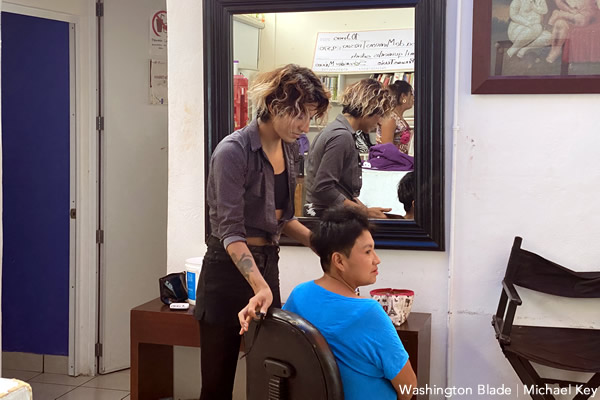
Victoria Alejandra Arias, 33, a trans woman who is also from Veracruz state, learned while at the shelter that she is living with HIV. She was diagnosed at the shelter and now receives treatment.
Arias abused alcohol and drugs and was a sex worker.
She said her now ex-partner physically and emotionally abused her. He threatened and blackmailed Arias before they finally ended up in jail.
Arias recalled she was in a desperate physical and mental state when a friend brought her to the shelter on Jan. 7. She has found purpose in her life after less than five months.
“We have several workshops here, we go out to do exercises,” Arias told the Blade. “My life has changed in every way. I have improved in the physical sense because I got too thin. I used crack, a very addictive drug, and it really destroys people. My appearance is improving little by little. I know that I am on my way.”
“Women already have a profession because of all this support,” added Cuevas. “It will be easier for them to integrate themselves into society because they can come out (of here) a little more educated, empowered and know their rights and responsibilities.”
More than 20 people were living in the shelter when Cuevas spoke with the Blade, with 50 names on a waiting list. Canela and Leslie, two rescue dogs, also live at the shelter.
The Mexico City government pays the shelter’s rent and utilities, but donations that mostly come through social networks and people who provide furniture and other items support it. Cuevas donates around 70 percent of her salary.
“Our day at the house starts at 6 in the morning,” said Arias. “We make the bed, we bathe, we put on makeup and we go to our workshops, because part of this place’s goal is to re-educate ourselves.”
Ríos told the Blade the shelter offers English, theater, cosmetology, mathematics, Spanish, science and acting workshops.
“I’ve already imitated Paquita la del Barrio because I look a lot like her physically,” she said. “My favorite workshop is the theater — especially comedy — one because it goes great with my personality. The experience of acting is very beautiful. I have a lot of fun.”
Ríos said she and other workshop participants are preparing to premiere a play in December. She told the Blade they also perform at street festivals and in prisons.
Cuevas said she wants to open a headquarters for Casa de las Muñecas and a shelter in each of Mexico’s 32 states. Cuevas added she would like to expand her work throughout the rest of Latin America.
She said her greatest achievement is the gratitude and happy faces of those who have passed through the shelter.
“Thanks to this place I have regained my dignity,” said Ríos. “I want to live and, despite my disability and all the physical problems, I don’t let myself be defeated and I keep going.”
Arias, meanwhile, hopes to become a stylist “because I want to have a job.”
“I would like to finish my studies,” she said. “I see all those goals closer and stronger now and all that is for my life here. My greatest success is being clean and having goals in my life.”
Argentina
Gay, nonbinary parent fights for family in Argentina’s courts
Leonardo Hatanaka alleges they were fired after requesting paternity leave

An unprecedented case could set an important legal precedent for the rights of labor rights for LGBTQ families in Latin America.
Leonardo Hatanaka, a Brazilian pharmaceutical professional, expects an imminent ruling from the Superior Court of Justice in the Autonomous City of Buenos Aires in a case that alleges discriminatory dismissal based on sexual orientation, gender identity, and xenophobia after their son Matteo’s birth in Argentina via “solidarity gestation.” Human rights organizations and international agencies have followed the case closely.
Genzyme de Argentina S.A. and Sanofi in 2023 fired Hatanaka weeks after they notified them of their son’s paternity and requested 180-day parental leave.
“Matteo’s birth was the realization of a dream and the right to form a family with love, dignity and equality, even if that means having to fight every day for our family to be recognized as such,” Hatanaka told the Washington Blade in an exclusive interview.
The National Institute Against Discrimination, Xenophobia and Racism, a government agency known by the acronym INADI that President Javier Milei’s administration has shut down, in November 2023 said Hatanka’s termination was motivated by discrimination based on sexual orientation and gender identity.
(Milei took office in December 2023.)
The General Directorate of Coexistence in Diversity in Buenos Aires’s government in 2024 said institutional xenophobia motivated the firing.
“I am a gay man, foreign, nonbinary, and I had requested to exercise my right to parental leave,” Hatanaka explained. “The company denied access to a basic right to care, which it does provide in other countries, and did not provide any medical coverage for our son, despite his legal registration with both parents’ names.”
Sanofi did not acknowledge responsibility, offer apologies or any kind of reparations, despite the two rulings.
“It was devastating. I was caring for a newborn, at a moment of enormous vulnerability, and the company chose just that moment to abandon us,” said Hatanaka.
The National Labor Court overturned an initial injunction that ordered Hatanaka’s reinstatement. Hatanaka appealed the decision to the Superior Court of Justice in the Autonomous City of Buenos Aires.
“I hope for justice; that the discrimination suffered is recognized, and that this ruling serves as a precedent for all diverse families and LGBTQ+ people who are seeing their rights violated,” said Hatanaka.
The Argentine LGBT Federation, SOS Homophobie in France, and Mothers of Resistance in Brazil are among the organizations that have expressed their support. The latest U.N. report on anti-LGBTQ discrimination also notes the case.
“Companies must go beyond marketing,” Hatanaka emphasized. “Real inclusion requires concrete actions, consistency, and respect for their own policies.”
Hatanaka stressed that “there are instruments such as the UN Guiding Principles on Business and Human Rights. It is time for them to comply with them.” The lawsuit has also become a symbol of the struggle for equality and protection of families with parents who are the same sex.
“I feel I represent many LGBTQ+ families who live in fear of losing everything by exercising their rights,” said Hatanaka. “LGBTQ+ parenting is legitimate, real and deserves protection. No family should be punished for existing.”
Myanmar
LGBTQ advocacy group joins Myanmar earthquake relief effort
March 28 quake killed thousands, devastated country’s second-largest city

A powerful earthquake that rocked Myanmar on March 28 unleashed devastation across the central part of the country.
The U.S. Geological Survey measured the quake at 7.7, and pinpointing its epicenter roughly 10 miles west of Mandalay, the country’s second-largest city. A 6.4-magnitude aftershock jolted the area 12 minutes later, compounding the destruction and deepening the crisis for a nation already strained by conflict.
The earthquake struck with terrifying intensity near its epicenter, wreaking havoc on Mandalay and the nearby city of Sagaing.
Mandalay, a bustling city of approximately 1.5 million residents, bore the brunt of the destruction. Among the most striking losses was the 12-story Sky Villa Condominium, which collapsed, leaving scores trapped beneath the wreckage. Rescue workers scrambled to pull survivors from the rubble, but the rising death toll underscored the tragedy’s magnitude.
In Sagaing, which is located closer to the epicenter, more than 70 percent of buildings sustained damage. The Ava Bridge, an essential artery spanning the Irrawaddy River, collapsed, cutting off a critical connection to Mandalay. The earthquake’s shallow depth of less than seven miles amplified its power, reducing homes, temples, and schools to rubble.
The earthquake’s death toll continues to climb, with at least 3,649 confirmed dead, more than 5,000 injured, and approximately 145 people missing. Amid the widespread devastation, questions loom about the impact on vulnerable populations. The Washington Blade reached out to Colors Rainbow, an organization advocating for LGBTQ rights in Myanmar, to understand how the crisis has affected one of the nation’s most marginalized communities.
Colors Rainbow Executive Director Hla Myat Tun spoke about how his organization is working to address the crisis faced by Myanmar’s LGBTQ community in the aftermath of the earthquake.
Colors Rainbow has implemented a system of multipurpose cash transfers, directing funds to local LGBTQ partner organizations. These grassroots partners, in turn, provide essential support to affected individuals that includes emergency cash assistance, food, non-food items, clean water, and basic emotional support tailored to the immediate needs of their communities.
“We estimate that around 500–800 LGBTQ individuals have been impacted in the affected areas, particularly in Mandalay Region, Sagaing Region, and southern Shan state,” said Hla Myat Tun. “So far, we have been able to directly assist around 80–100 LGBTQ individuals.”
Hla Myat Tun told the Blade that Colors Rainbow is actively gathering data to assess the specific challenges that LGBTQ people are facing in the aftermath of the earthquake.
Preliminary observations, he noted, point to heightened vulnerability among LGBTQ people, driven by social exclusion and limited access to mainstream humanitarian aid. Hla Myat Tun, however, emphasized more comprehensive information is necessary to fully understand the scope of their needs and vulnerabilities in this crisis.
“We are partnering with international LGBTQ and feminist organizations that focus on displaced communities,” said Hla Myat Tun. “These partners provide emergency funds, and we coordinate with local LGBTQ groups to deliver aid directly to affected individuals on the ground.”
Addressing reports of military restrictions on humanitarian aid, Hla Myat Tun explained how Colors Rainbow is managing to reach LGBTQ people who are in conflict zones and areas the military junta controls. Hla Myat Tun highlighted the importance of the organization’s trusted local LGBTQ partners, who are embedded in these regions. Their presence and established networks, he said, are vital in navigating restricted areas and ensuring that aid reaches the LGBTQ people who are most in need.
Hla Myat Tun also provided insight into how Colors Rainbow is tailoring its relief efforts to meet the LGBTQ community’s specific needs.
He said his organization is gathering information directly from LGBTQ people through close coordination with its local partners, relying on both formal and informal communication channels. Hla Myat Tun told the Blade his team conducts daily check-ins via quick telephone calls, ensuring a continuous flow of information to guide their response efforts despite limited internet access, electricity and other challenges.
“Our approach is collaborative — we set strategies and share responsibilities to respond flexibly and safely, based on the rapidly changing local context,” he said. “Personal stories are being documented, but for security reasons, we are cautious about sharing them publicly.”
When asked whether staff or volunteers had harassment, discrimination, or violence while delivering aid — a concern given the precarious legal and social climate for LGBTQ people in Myanmar — Hla Myat Tun said there have been no reported incidents thus far.
“So far, we haven’t received any reports from our staff or local partners about harassment or violence while delivering aid,” he noted, emphasizing Colors Rainbow remains vigilant and has implemented robust safety protocols to protect all involved.
Colors Rainbow relies primarily on funding from international LGBTQ-focused partners. He noted, however, humanitarian funding specifically dedicated to LGBTQ communities remains vastly under-resourced, relative to the pressing needs on the ground. Hla Myat Tun said this shortfall severely limits the scale and reach of Colors Rainbow’s efforts.
“While Myanmar’s legal framework remains outdated, societal attitudes — especially during the civilian government — have shown signs of progress,” said Hla Myat Tun. “We have seen positive change thanks to the work of local LGBTQ organizations.”
“In the current crisis, many communities are working together despite legal barriers. However, in areas without LGBTQ-led organizations, inclusive humanitarian responses are still lacking,” he added. “There’s an urgent need for international humanitarian actors to understand and implement LGBTQ-inclusive practices in Myanmar.”
When asked about long-term strategies to support the recovery and resilience of LGBTQ communities as Myanmar rebuilds, Hla Myat Tun affirmed Colors Rainbow is deeply committed to fostering resilience. The organization’s initiatives include leadership development, community empowerment through training and workshops, sub-granting programs, and organizational development support. He also highlighted Colors Rainbow’s advocacy for LGBTQ-inclusive policies and collaboration with ethnic groups to promote an inclusive federal democracy, and specifically thanked Outright International, a global LGBTQ and intersex rights group, for “amplifying our work.
“This kind of international attention shines a spotlight on the challenges LGBTQ communities in Myanmar are facing and helps open doors for more support,” Hla Myat Tun told the Blade. “It also boosts visibility and solidarity, both locally and globally, which we deeply appreciate.”
Hungary
Hungarian MPs amend constitution to ban public LGBTQ events
Viktor Orbán’s government spearheaded amendment

Hungarian MPs on Monday voted to amend their country’s constitution to ban public LGBTQ events.
The vote took place less than a month after lawmakers banned Pride events and gave authorities the green light to use facial recognition technology to identify those who participate in them.
The Associated Press notes MPs approved the constitutional amendment — which Prime Minister Viktor Orbán’s Fidesz-KDNP coalition government proposed — by a 140-21 vote margin. Authorities before the vote removed a group of protesters who tried to block the entrance to a parliament parking garage.
Orbán’s government over the last decade has moved to curtail LGBTQ and intersex rights in Hungary.
A law that bans legal recognition of transgender and intersex people took effect in 2020. Hungarian MPs that year also effectively banned same-sex couples from adopting children and defined marriage in the constitution as between a man and a woman.
An anti-LGBTQ propaganda law took effect in 2021. The European Commission sued Hungary, which is a member of the European Union, over it.
MPs in 2023 approved the “snitch on your gay neighbor” bill that would have allowed Hungarians to anonymously report same-sex couples who are raising children. The Budapest Metropolitan Government Office in 2023 fined Lira Konyv, the country’s second-largest bookstore chain, 12 million forints ($33,115.76), for selling copies of British author Alice Oseman’s “Heartstopper.”
Former U.S. Ambassador to Hungary David Pressman, who is gay, participated in the Budapest Pride march in 2024 and 2023. Pressman was also a vocal critic of Hungary’s anti-LGBTQ crackdown.
The Washington Blade has reached out to Budapest Pride for comment on the constitutional amendment.
-

 Opinions4 days ago
Opinions4 days agoIt’s time for new leadership on the Maryland LGBTQIA+ Commission
-

 The White House4 days ago
The White House4 days agoWhite House does not ‘respond’ to reporters’ requests with pronouns included
-

 Noticias en Español5 days ago
Noticias en Español5 days agoINDIGNACIÓN: ¡El transfeminicidio de Sara Millerey en Colombia nos cuestiona como sociedad!
-

 Arts & Entertainment4 days ago
Arts & Entertainment4 days ago‘Gay is Good’ Pride Pils Can Celebrates Frank Kameny’s 100th Birthday for WorldPride in D.C.

